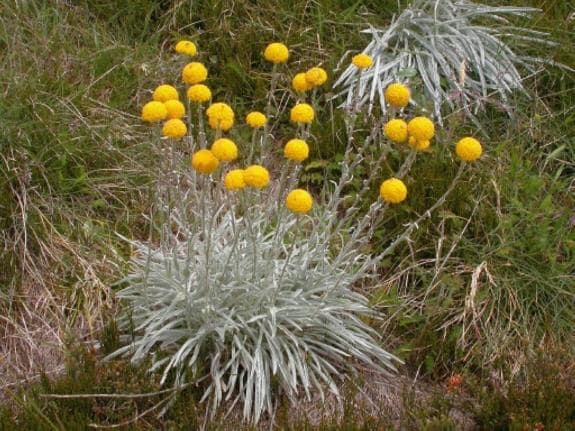Craspedia globosa
Adaptable and drought resistant, Craspedia forms a clump of silvery-green foliage topped by yellow, drum-stick blooms
Denise Bush
Viernes, 10 de agosto 2018, 17:28
Craspedia is a genus in the Asteraceae family (daisies) and originates from Australia, New Zealand and Tasmania where it is a perennial wild flower. It is very popular with florists for both fresh and dried flower arrangements as the bright-yellow, spherical flower heads are long lasting and form on long, stiff stems up to 90cm tall.
The common names for Craspedia globosa, one species in the genus that is particularily good for gardens, include Billy buttons, Billy balls, Wollyheads and Drumstick flowers. It is adaptable to most types of soils except acidic, as long as they are free draining.
The silvery-green leaves are grass-like and grow in rosettes; each rosette will produce one flower stem. Eventually the rosettes will form a large domed clump which can be divided by lifting in the autumn and removing rosettes from around the edge - although getting them established can be a slow process. A better way to propagate Craspedia globosa is by seed sown in the spring.
Craspedia is drought resistant once established but for the best display of flowers from late spring and right through the summer, regular watering and plenty of sunshine is needed. It is a plant that likes to have its head in the hot sun and its 'feet' in the cool shade so cover the base with a thick layer of mulch or gravel. It is not frost hardy although will survive most winters if mulched adequately.
The sulphur yellow golf-ball-shaped flowers will appear all year round in temperate climates and are said to symbolise good health. The flower heads are made up of masses of tiny flowers and for flower displays are best picked when open about half way. C. globosa is an example of the mathematical perfection of plants; the tiny flowers in each sphere are arranged in a flawless Fibonacci spiral.
